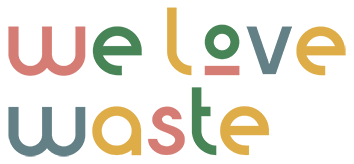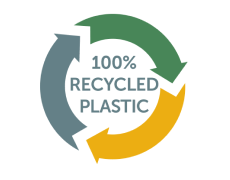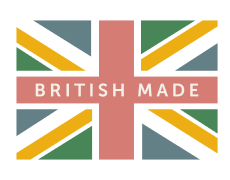ReBorn's Founder and CEO, Brian Walmsley, talking about the brand name "ReBorn", and how he's balancing Purpose, Planet, and Profit.
Virgin 'Change Makers' Start-Up Event, Founder Interview Series: Part 3 of 7
In this honest and insightful interview at a Virgin Start-Up event Brian Walmsley, founder and CEO of ReBorn Homeware, talked about his personal and professional motivations and the idea that started it all.
In this third episode, Brian is discussing how the brand name ReBorn came along, and how he's building a business balancing Purpose, Planet, and Profit. With host Nathalie Pearce asking the questions, she and Brian start from the very beginning and cover:
- Name and Branding:
- Consideration of the name "Kintsugi" and the Japanese art of making beautiful things out of broken items.
- Process of naming and branding, leading to the choice of "Reborn."
- Balancing Purpose, Planet, and Profit:
- Influence of "Doughnut Economics" by Kate Rayworth.
- Adoption of the mantra "people, planet, profit" as a decision-making filter.
- Challenges and importance of balancing profit with purpose and impact.
- Customer-Centric Approach:
- Emphasis on commercialization from the beginning.
- Importance of customer feedback and continuous refinement based on consumer preferences.
I am really curious about the name ‘ReBorn’. It's a gorgeous name and I really love how it speaks to what you do and the whole idea of products reborn to be used in a new way. How did you come up with the name?
One of the best things about starting a business is you get to choose your team, and I love this about start-ups, you bring together the best people you've worked with over your entire life.
You create the team. So, I'm very lucky to work with some great people. A couple of them are here. George from Brunel University. One of the other pieces of the puzzle were these guys Derek and Alex, who run a design studio in Richmond, called Family and Friends. I'd worked with them previously and they have a process. They're ex Saatchi.
So, there was a name before ReBorn and that name was ‘kintsugi’. It's a Japanese word and kintsugi is the Japanese art of making beautiful things out of broken things. It's an artform in Japan. If you Google it you'll see things like broken pottery that's laced together with gold or something, incredible things. So, if you break a pot why not turn that back into something else? And it's so it's an art and a skill.
So that's what this project was initially called and for long time we were thinking, it could be branded ‘Kintsugi’. But Derek and Alex are masters of their trade in terms of branding and packaging, and they said, actually we should go through a process of naming. So, you identify all the truths of the company, the truths of both the functional benefits, the emotional benefits, everything. And it was through all of that work that we identified effectively the ‘rebirth of new materials’ and hence ‘ReBorn’. So, it was a painful process, it seems simple and obvious when you look back, but at the time it wasn't.
One of the things that I'm sure came through in that branding and naming process, and one of the things I really love about the story of Reborn, is how purpose and impact is very much front and centre to what you're doing.
I've read some lovely quotes from you about how purpose, planet and people are always first and everything else second. So I'm curious, how have you kept that at the forefront, the idea of ‘purpose, planet and people’. And has there been moments of imbalance where it's harder to maintain that stance?
So, a game changer for me was the Kate Rayworth book ‘Doughnut Economics’, if you know that. So that reframed for me the purpose of work and economics. I can’t recommend it enough. It helped me frame this mantra, and other people have used it before, I can't claim copyright on it but ‘people, planet, profit’.
And starting a business and in life just now, life's incredibly complicated. There's some stat that Adam Grant quotes, which is we’re faced with four times as much data information inputs now and in all of our lives, than we were 30 years ago. Four times more because of the internet, because of social media, because of our phones, and our pockets, which are just inundated with stuff. So, how do you prioritise? It was always hard, right? But to prioritise life, even now, is this worth your time?
Why would we do what we do? What are we doing tomorrow out of all the choices? So, having a mantra, having a NorthStar for decision making, I think, is important in all our lives. And my filter for, is this worthwhile doing, is those three things ‘people, planet, profit’. And profit may seem very materialistic within that framing, but I think I can only serve other people if what I'm doing is profitable from a sustainability perspective, in the economic sense of the word. So, I use that as my filter for doing stuff: people, planet, profit. Yes, I get diverted all the time like we all do, and this is the way I frame things around this purpose.
I love the point that you made there about profit because in the collective impact program that you went on, one of the things that I've often heard from founders of impact brands and purpose led brands, is this discomfort around money and profit and how serving my community but making a profit feels a bit uncomfortable.
I always say, as you said, you can't make the impact and have the grand change that you want to have without commercial viability. Because it's going to wear you out, it's going to wear the business out. And so it's really nice to hear you talk about the balance of the three of them as well.
Yes. And putting the consumer at the centre of your business is a massive way to do that because you're always asking people, would you buy it?
When I first met George at Brunel with the very first kintsugi products, we had literally melted down old products because that was the idea. We wouldn't have needed any machines at all. We’d literally just melt the stuff down and then just sell it. I showed it to loads of people and they said ‘yes, what a great idea’. But then I asked, would they buy this? They said ‘no, I wouldn't buy it. Of course, I wouldn't buy it. It's a great idea, that you should do it Brian. It's amazing. But I would never buy it’.
So then I had to go deeper. Well why wouldn't you buy it?
‘Because it looks dirty. I wouldn't want to cut my food on it. I wouldn't want to have it in my kitchen and it wouldn't go with anything. It's really important to me for things to look good and fit in with the rest of my stuff in my home. It has to match.’
So, I had this disconnect about profit, where I had to go underneath the surface to say, ‘look not only do you like it, but would you buy it?’ So, that's where having a profitable business that's focused in on buying stuff. It's a vote, right? It's a vote.
You've hit on such an important point about customer research, it's not enough to ask if someone likes something or if something's good. Will you part with money for it? And how much money would you pay for it?
It is particularly true of sustainability, where what people say and what people do, I'm afraid, sometimes, there's a bit of disconnect. People want to give you the answer you're looking for, like ‘Oh yes’ I recycle everything. But actually, with the pressures of everyday life, people don't or they don't do as much perhaps as they say they do. We have to put people in a real life context. Take them away from what they feel they should say. And price is the other area where people do and say very different things.
Join us for the next episode where Brian will be discussing how the brand name ReBorn came along, and how he's building a business balancing Purpose, Planet, and Profit.
About ReBorn®
Imagine a world without waste; a world where any waste can be turned into useful and stylish products. This is why ReBorn® Homewares was created bringing this vision to reality. ReBorn is dedicated to creating stylish, functional and planet-friendly homeware, with all products in the range made in the UK from recycled materials and ‘circular by design’.



